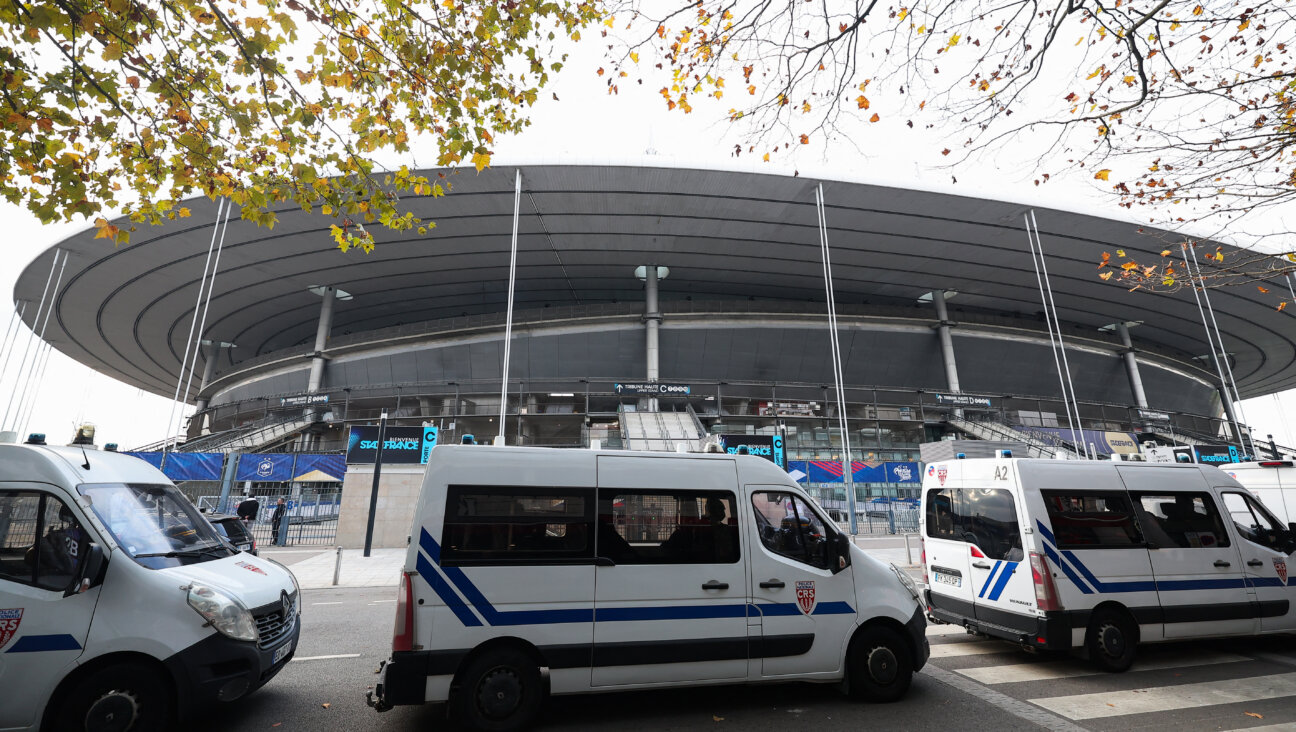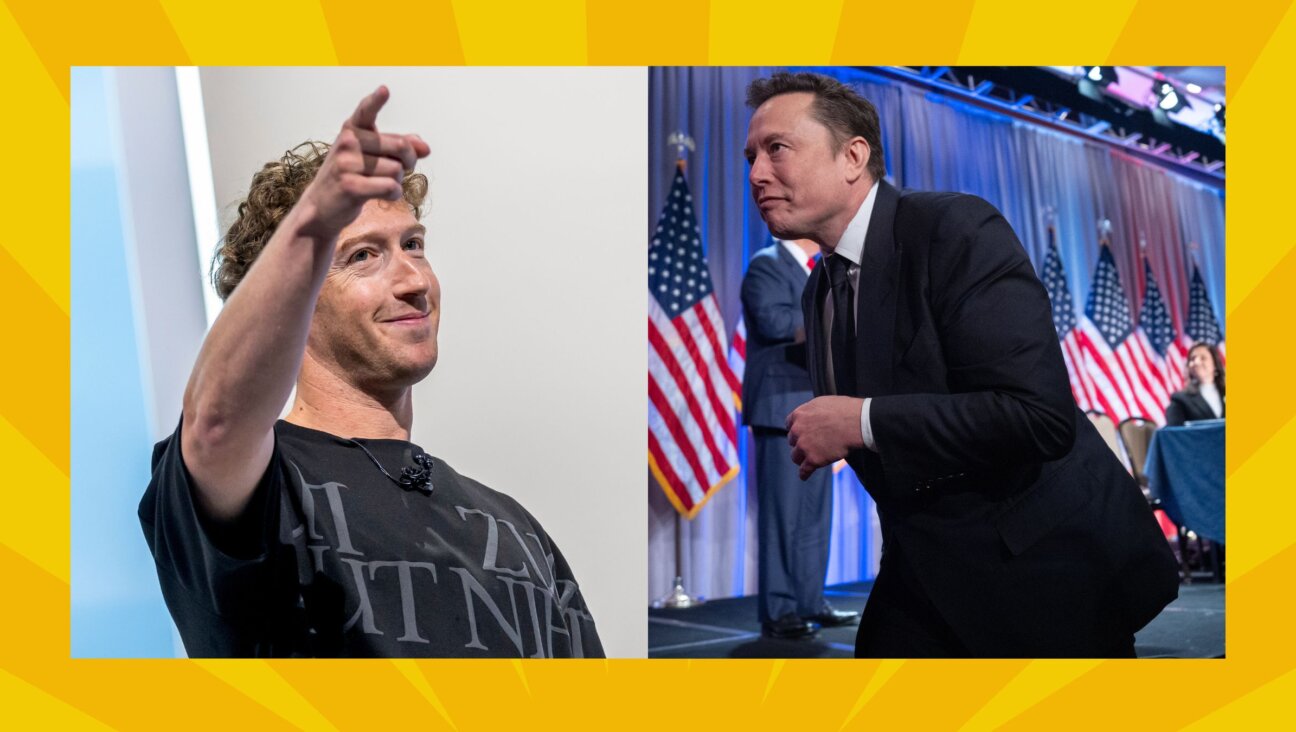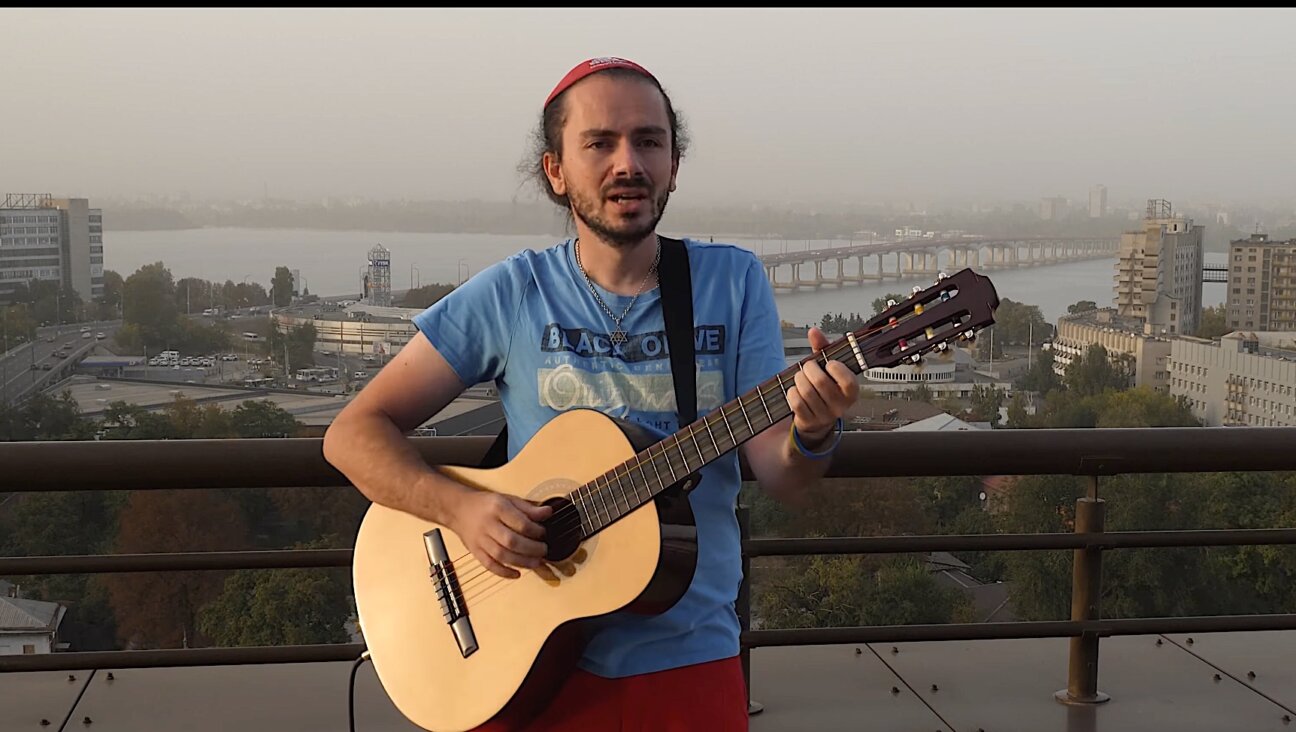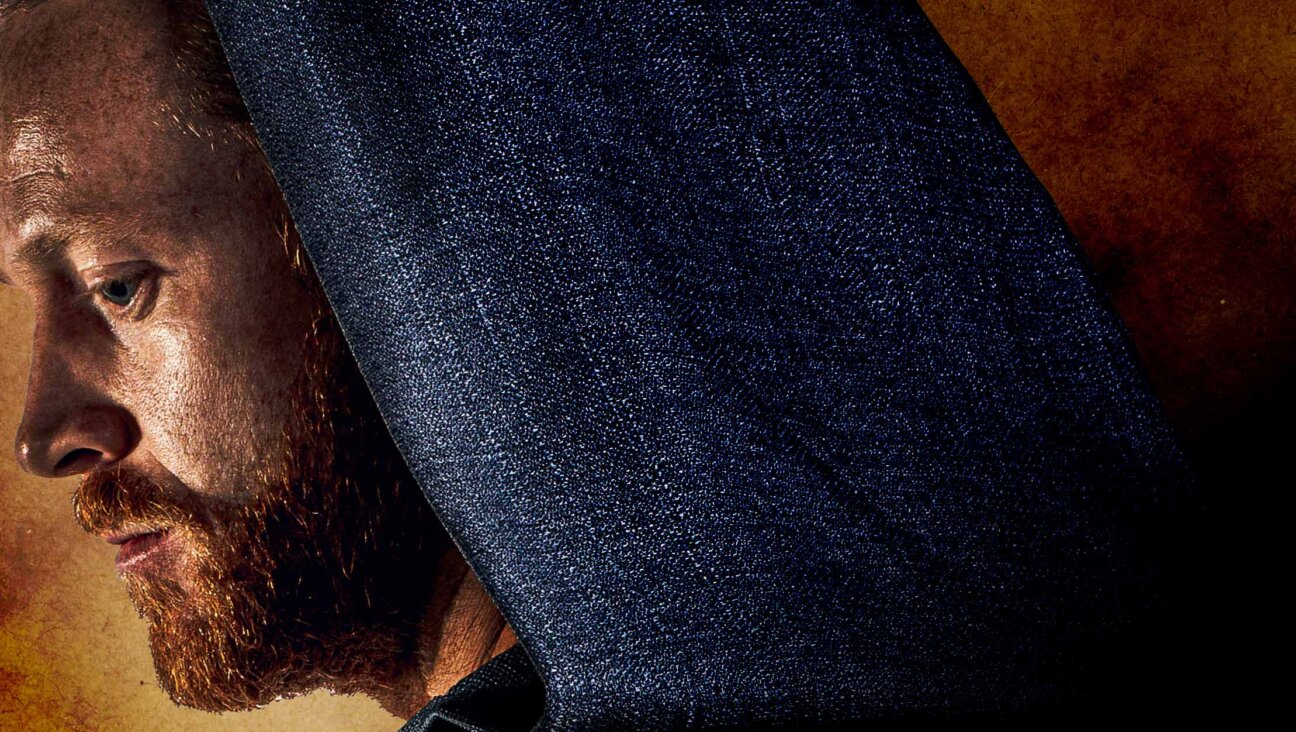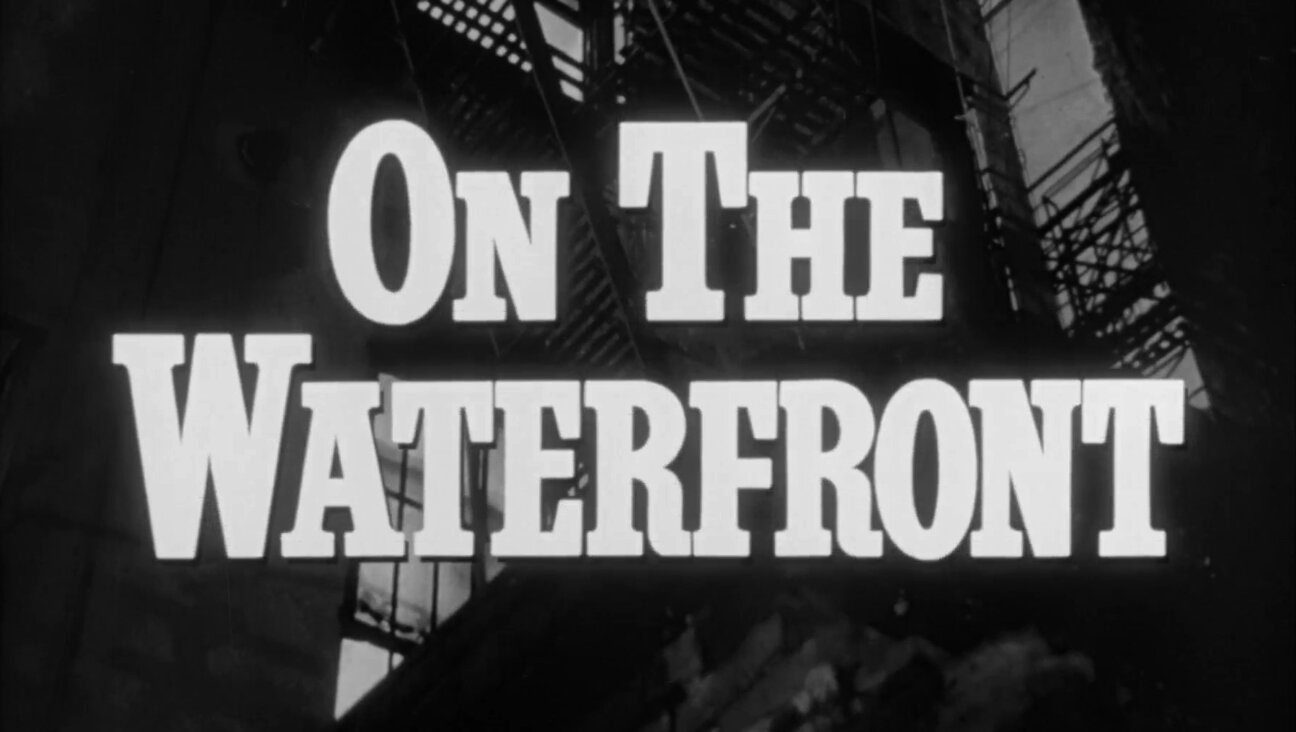Out of Many, Less Than One
The polite way to put it is that we are a “voluntary community,” and that is surely the truth. But it is quite far from the whole truth, which is that we are an anarchic community. For better and now and then for worse, we have neither pope nor president, no hierarchical structure that speaks to — and for — us all with authority.
Two unfolding, disturbing and even dangerous dramas are currently playing out —one on Each Coast — that illustrate the problem.
On the west coast, the Simon Wiesenthal Center has gone off on its own to accuse the controversial president of Venezuela, Hugo Chavez, of antisemitism. Its accusation was based on a somewhat ambiguous excerpt from a long Chavez speech on other matters, and any antisemitic intent has since been vigorously denied by the Venezuelan president.
I do not know whether Chavez harbors antisemitic sentiments. I do, however, know that there are 18,000 Jews in Venezuela, that the Confederation of Jewish Associations of Venezuela, or CAIV, is their central organization and that no one at the Wiesenthal Center consulted with CAIV before releasing its statement.
And I don’t really need to know more than that. I don’t need to know that both the American Jewish Committee and the American Jewish Congress do not accept that Chavez’s ambiguous comments were aimed at the Jews, and I do not need to know that CAIV has vehemently objected to the intrusion of Wiesenthal into its affairs.
I don’t need to know that American policy is vigorously anti-Chavez or that Venezuela supplies 12% of America’s daily oil. I don’t need to know that the Wiesenthal Center claims to speak on behalf of its “400,000 members,” a claim that depends on an extravagantly loose definition of “member.” I don’t need to know that in addition to Rabbi Marvin Hier, who founded and directs the center, Wiesenthal employs four other Hier family members, a fact that says as much about its board as about Hier.
Yet Chavez and others may well neither know nor understand that the Wiesenthal Center speaks only for itself. It does not report to the Conference of Presidents of Major American Jewish Organizations nor clear its actions with any agency, only with its own apparently somnolent board. It is entirely autonomous, as Jewish organizations in this country are, and can make whatever mischief it chooses to — including, with remarkable chutzpah, “demanding” that Chavez apologize for his alleged affront.
The failure to consult with the indigenous community is not a Wiesenthal exclusive; it used to characterize Israel’s behavior, as notably in the case of Argentina. But Israel, at least, can lay claim to raisons d’etat; raisons de Hier don’t quite compare.
Meanwhile, here in Boston there’s something called The David Project, which has decided to act as shotgun for the Jews in confronting a local Islamic center. Its complaint against the Islamic Center has several parts and has by now led to the courts, with the Islamic Center accusing The David Project of defamation. The project’s central accusation appears to be that the Islamic Center is sleeping with the enemy — that is, that it includes, or included in the past, radical Islamists on its board, and that its funding comes principally from Saudi Arabia.
Once again, the issue is not the truth of the allegations. The issue is whether a group of presumably well-intentioned Jews, in a community that has over the years invested millions of dollars in the work of community coalition building, that has not merely a functioning but a distinguished Jewish Community Relations Council — quite widely perceived, in fact, as among the most vigorous and effective in the nation — is wise to go off on its own and create a basket full of tensions and ill feeling.
The folks at The David Project evidently believe that the JCRC has been asleep at the switch. In their view, radical Islam is a clear and present danger, and not just far away but right here. Their assault on the Islamic Center, decorated though it is with the rhetoric of tolerance and pluralism, is meant to sound an urgent warning to us all: The Islamists are coming. Oh oh, they’re already here. And they must be confronted. Now.
Whether such a confrontational approach is well advised or ill advised is, of course, a judgment call. Arguably, its effect is more likely to radicalize moderates than to blunt extremists.
Jewish organizations are, of course, free to enter any china shop they choose. There can be no question of their entitlement — only of their judgment, their wisdom. In the Boston case, significant tensions already have resulted from The David Project’s strenuous, but so far largely unsuccessful, efforts to recruit the local black community as allies in opposing the Islamic Center’s plans to build a new mosque.
More ominously, the project’s style threatens to undermine venerable agencies — such as the JCRC, the Anti-Defamation League the and American Jewish Committee — that the community relies on to take the lead in community relations work. While the consequent tensions are for the time being local, the national ambitions of The David Project are no secret, and communal institutions in other cities ought be wary when it comes calling.
As to the Wiesenthal Center’s reckless exercise of its autonomy, pleasing as that exercise may well be to the Bush administration and to ExxonMobil, Los Angeles pays no price; it is in Caracas that the danger may play out. If Chavez is as wild a man as America claims, is it not possible that the Venezuelan Jewish community will reap the whirlwind that the Wiesenthal Center has sowed?
There’s no easy cure for organizational irresponsibility. We are fortunate that there’s no one to give us all marching orders. But when people insist on making the Sabbath for themselves, the fragile threads of community are frayed. E pluribus, anarchy; out of many, less than one.
A message from our CEO & publisher Rachel Fishman Feddersen

I hope you appreciated this article. Before you go, I’d like to ask you to please support the Forward’s award-winning, nonprofit journalism during this critical time.
At a time when other newsrooms are closing or cutting back, the Forward has removed its paywall and invested additional resources to report on the ground from Israel and around the U.S. on the impact of the war, rising antisemitism and polarized discourse.
Readers like you make it all possible. Support our work by becoming a Forward Member and connect with our journalism and your community.
— Rachel Fishman Feddersen, Publisher and CEO









